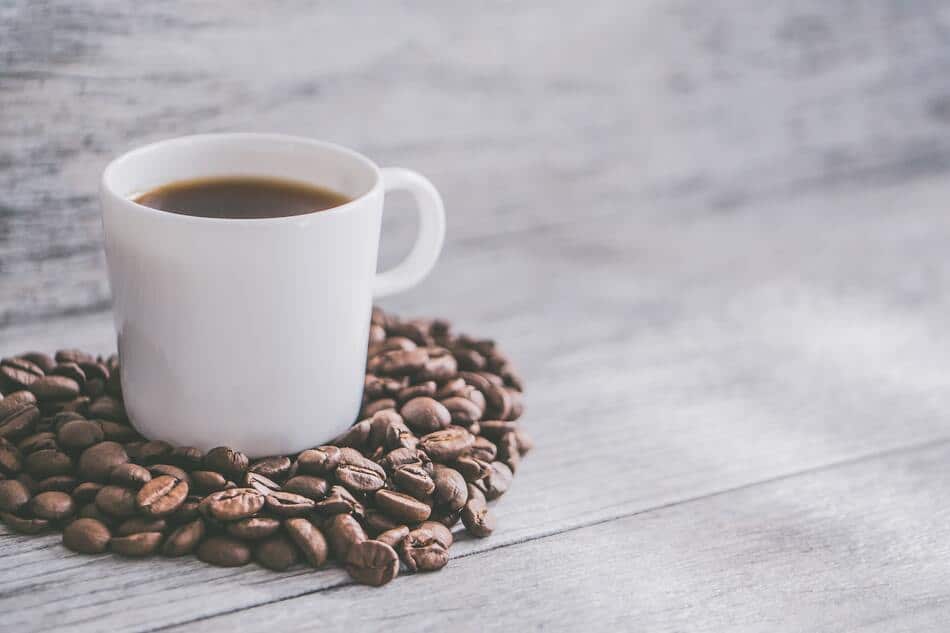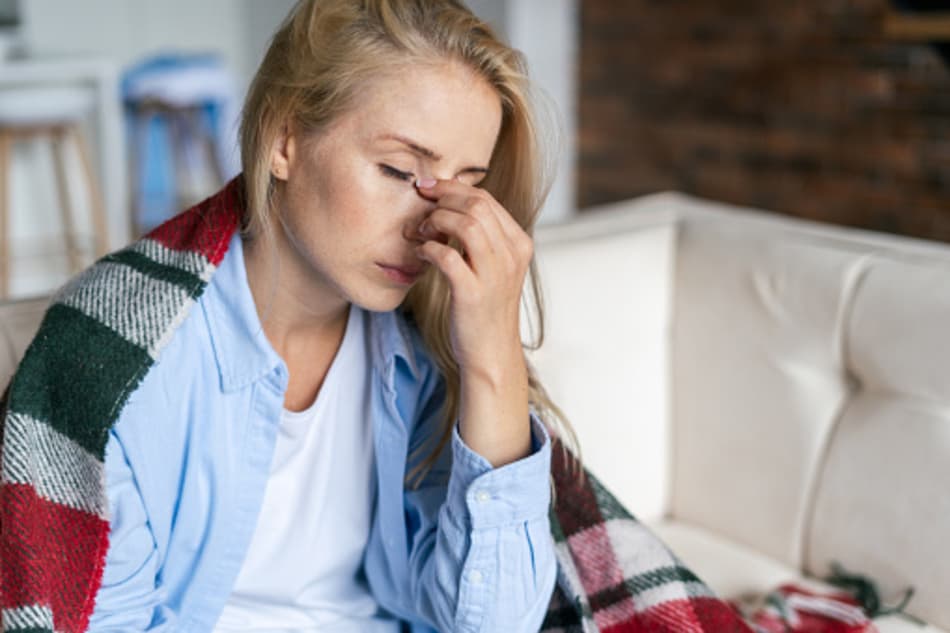I love coffee. There’s nothing like the smell of fresh-brewed coffee in the morning. I drink it every day, and I usually find that it helps me wake up and get going. But sometimes, even after drinking a large cup of coffee, I still feel tired. Why doesn’t coffee wake me up?
First, it could be that the coffee isn’t strong enough. If you’re used to drinking weak coffee, then switching to a stronger brew may make a difference. Second, it could be that you’re not drinking enough water. It could also be that you have built up a tolerance to caffeine.
How Caffeine Works
Caffeine blocks adenosine, a neurotransmitter that makes you feel sleepy. When you drink caffeine, it prevents adenosine from binding to receptors in your brain, which results in a temporary increase in alertness. However, this effect is short-lived and can lead to increased fatigue once the caffeine wears off.

Caffeine is a central nervous system stimulant. It works by blocking the action of adenosine, a neurotransmitter that promotes sleep. When you drink coffee, the caffeine enters your bloodstream and travels to your brain. There, it attaches to receptors on neurons and prevents them from receiving signals from adenosine. This process increases activity in the brain and helps you stay awake. Usually, the effects of caffeine kick in within 15-20 minutes after you consume it. So why doesn’t coffee wake me up? There are a few possible explanations.
Exhaustion Levels are Too High
Exhaustion levels might be too high for coffee to have any effect. When we’re extremely tired, our brains aren’t as responsive to the stimulating effects of caffeine.
Tolerance
Another reason why coffee might not be working for you is because of tolerance. If you drink coffee every day, your body becomes tolerant of the effects of caffeine. So if you’re drinking the same amount of coffee as you were a year ago, it’s likely that it’s not having the same effect. To combat this, you can try switching to a higher quality coffee or increasing your intake. You could also try cutting back on coffee or taking a few days off every week to reset your tolerance. Drinking more than 500 mg of caffeine per day can lead to tolerance, meaning that you need increasingly larger doses of caffeine to feel its effects.
Metabolism
Our bodies might metabolize caffeine differently. Some people process caffeine quickly and others process it slowly. Metabolism of caffeine has a gene that makes them less sensitive to its effects. People who don’t metabolize caffeine well may not feel as alert after drinking coffee because the effects of the caffeine take longer to kick in. Caffeine can also cause anxiety and restlessness, which can make it hard to focus and concentrate. If you’re struggling to wake up after drinking coffee, it might be time to switch to another morning beverage.
Sleep Habit
Another reason why coffee may not be waking you up is because of your sleep habits. If you’re not getting enough sleep at night, no amount of caffeine will make you feel more awake during the day. Trying to compensate for lost sleep with caffeine can make matters worse by disrupting your natural sleep cycle and making it harder to fall asleep at night.
It’s important to remember that coffee is not a magic potion. It can help improve alertness but it’s not going to fix underlying problems like sleep deprivation or anxiety. If you’re struggling to wake up in the morning despite your best efforts, it might be time to reevaluate your sleep habits. Excessive daytime fatigue can be a sign of underlying health conditions like sleep apnea or depression. It can also be a side effect of certain medications. If you think your sleep habits might be to blame, talk to your doctor. They can help you develop a plan to get the rest you need.
Dehydration
Dehydration is one of the main reasons why coffee doesn’t wake you up. When you’re dehydrated, your body isn’t able to function at its best and this includes your brain. When you drink coffee, the caffeine enters your bloodstream and goes to your brain where it blocks adenosine. Adenosine is a neurotransmitter that makes you feel sleepy.
So, if you’re dehydrated, there’s less water for the caffeine to block and therefore, less of an effect on wakefulness. Make sure to drink plenty of water throughout the day and avoid diuretics like alcohol which can make dehydration worse.
Medication
Medication can also be a factor in why coffee doesn’t seem to work. If you’re taking beta-blockers or other medications that affect your nervous system, they can slow down the effects of caffeine. This is why it’s always important to talk to your doctor about any medications you’re taking and how they might interact with caffeine.
Sensitivity
It’s also worth noting that some people are more sensitive to caffeine than others. If you find that even a small amount of coffee makes you jittery or keeps you up at night, it might be best to cut back or switch to decaf. Everyone’s body responds differently to caffeine, so it’s important to listen to yours and adjust your intake accordingly.
Preparation Method
Another reason why coffee might not be working is because of how you’re preparing it. If you’re using old beans or brewing your coffee with water that’s not hot enough, you won’t be getting as much caffeine as you could be. Make sure you’re using fresh beans and boiling water to get the most out of your cup of joe.
Stress
Stress can also play a role in why coffee isn’t giving you the energy boost it used to. When we’re stressed, our bodies release cortisol, which can make us feel tired and sluggish. If you find that your morning cup of coffee isn’t giving you the pick-me-up it used to, try taking a few minutes to relax before you start your day. Taking some deep breaths or going for a quick walk can help to clear your mind and reduce stress.

At the end of the day, if you’re not getting the results you want from coffee, it might be time to try something else. There are plenty of other energy-boosting foods and drinks out there, so experiment until you find something that works for you. And remember, even if coffee doesn’t work for you, it can still be a delicious treat!
Related: Why Does Coffee Make Me Nauseous?
What To Do If Coffee Isn’t Waking You Up
We’ve all been there. You wake up feeling groggy, so you decide to make a quick cup of coffee to help you perk up. But instead of making you feel more alert, the coffee seems to have no effect. If this has happened to you, don’t worry – there are a few things you can do to try and wake yourself up.
- It’s important to remember that not all coffees are created equal. If you usually drink instant coffee or flavored coffee drinks, these probably won’t have as much of a wake-up effect as a strong cup of black coffee will. So if you’re looking for an extra jolt in the morning, stick to plain old black coffee.
- Make sure you’re using fresh beans. Coffee that’s been sitting around for a while is going to be less potent and won’t have as much of an effect on you. So if you’ve had that can of coffee beans sitting in your cupboard for a few months, it might be time to toss them out and get some new ones.
- If you’re still not feeling more awake after having a cup of coffee, try drinking some green tea instead. Green tea contains caffeine, but it also has L-theanine, an amino acid that can help improve focus and alertness. So if coffee isn’t doing the trick, green tea might be worth a try.
Bottom Line
So why doesn’t coffee wake me up? The answer is simple: caffeine isn’t the only thing that affects our sleep. Our bodies are complex machines, and there are a lot of factors that go into how we feel when we wake up in the morning. If you’re having trouble waking up, it’s important to talk to your doctor or a sleep specialist to figure out what might be going on. Getting a good night’s sleep is important for our overall health, so don’t be afraid to ask for help if you’re struggling. With a little effort, you can find a way to wake up feeling refreshed and ready to start your day. Thanks for reading! Please feel free to leave any questions or comments in the box below. I’ll do my best to respond as quickly as possible. Take care until next time!

